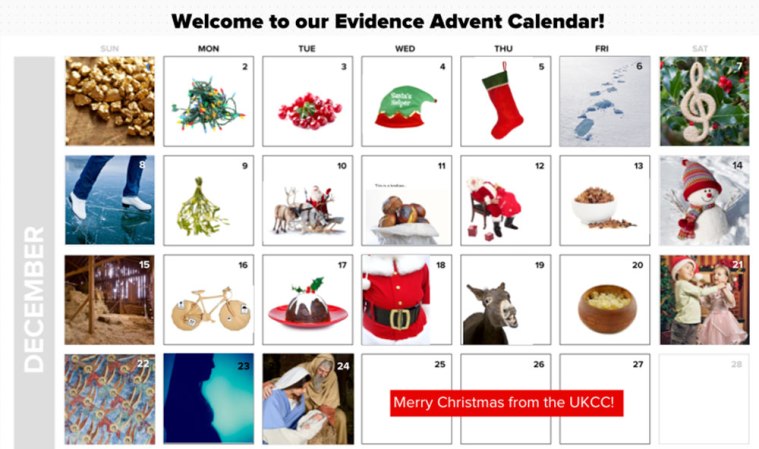If you read my last blog, you’ll know I’ve been getting hot under the collar about evidence gaps and I’m not about to quieten down about those any time soon, as you’ll see if you read to the end of the blog. There are not just gaps but some enormous black holes, this time not because no evidence was found but because so much of it was unusable. But at least there’s good news too; some reviewers find what they’re looking for and can give us evidence which shows benefits from particular interventions. So, if you logged on thinking you’d like to read about teeth, pain (from several causes), schizophrenia treatments, gut bacteria and jellyfish (really!), you’ve come to the right place. Continue reading
Tag Archives: Cochrane Oral Health Group
An evidence advent calendar!
It turns out that Cochrane’s for Christmas, not just for life, with evidence in the Cochrane Library on all manner of festive things from gold, frankincense and myrrh to stockings! Ok, some of the links are a bit tenuous, but we hope you’ll enjoy our advent calendar.
Owing to some trouble with the technology elves, we couldn’t make it interactive (boo!) but each day we’ll post some Cochrane evidence related to the day’s picture, below the calendar. If you think of any others, do share them via the comments box.

Helping, not harming: with a little help from the Cochrane Library
The Ancient Greeks knew a thing or two, not least about medicine. We are hearing a lot about shared decision-making in these days of ‘no decision about me without me’, but the notion that the patient must combat the disease along with the physician appears in Hippocratic writings from the early fourth century BC and so does the requirement that the doctor’s job is to do good or to do no harm.

HES: risks may outweigh benefits
Fast forward a couple of millennia and we come to the Cochrane Library! Looking through the newest evidence there put me in mind of these basic principles of medicine, particularly how vital it is to know about the possible harms resulting from treatments, and that researchers must ask useful questions and measure the right things if that research is going to help patients. Continue reading
